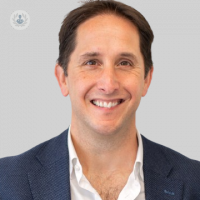Common children’s orthopaedic conditions
Written in association with:Which orthopaedic conditions occur the most in children? Sometimes parents need reassurance, even if their child presents with something that is part of their natural growth process. However, treatment may required on rare occasions.
Mr Thomas Crompton, consultant orthopaedic surgeon and paediatric specialist, details the most common children’s conditions that he sees or treats.

What are the most common children’s orthopaedic conditions you see?
The most common children's orthopaedic conditions I treat; I will separate out into those children I see in clinic, whose parents are concerned about something which turns out to be part of normal growth and development, and those that need treatment.
I have to say that the majority of children I see in clinic don't ever need any surgery or even treatment. What we try and do is sort out the normal growth from the abnormal growth. And that is something that I have lots of experience doing.
The common things I see in clinic that need just reassurance are:
- Flat feet in very young children, under-five.
- Bowing of the legs in children two and under - colloquially called knock knees. We see this in children of three to four years of age.
All of these things are part of normal growth and development. I need to make sure there's nothing else going on by examining children and very occasionally doing X-rays. Most of these children and parents can be reassured and require no treatment.
What about paediatric orthopaedic conditions that need treatment?
As for orthopaedic conditions that need treatment, throughout the ages in babies, hip dysplasia is the most common thing I would see and treat.
Also, in babies we see talipes, or it used to be called club feet. So, a foot deformity from birth that needs some treatment.
In older children we sometimes see leg length discrepancies if they're caused by infection or trauma, and those certainly require treatment.
Other conditions that cause hip pain, maybe something like a slipped capital epiphysis, a rare condition that causes hip pain, but I'm able to rule these rare conditions out and reassure parents that there's nothing else that will require orthopaedic surgery.
For reassuring advice and treatment, speak to Mr Crompton about orthopaedic concerns regarding your child. Make an appointment today via his Top Doctors profile, here.


